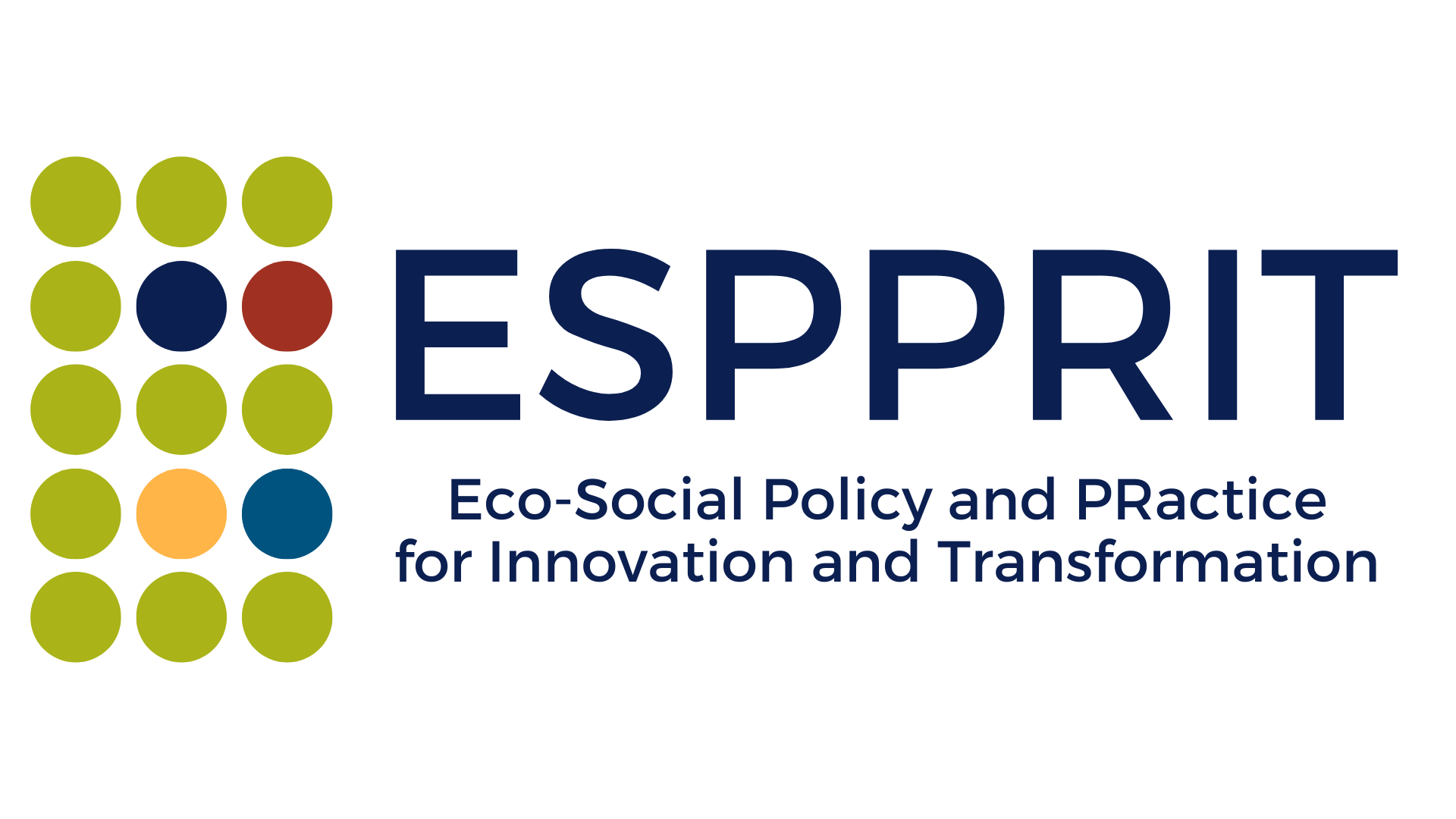ESPPRIT Objectives
The overall aim of the network is to foster interdisciplinary discussions on eco-social transformations, following four objectives:
Understanding the geographical dimensions of eco-social transformations relating specifically to concepts of the foundational economy, post-growth planning, sustainability transition, sustainable welfare and wellbeing and multi-level governance. We will consider the role of place-based approaches “from the bottom” within local society, “from the top” by national governments or supranational organisations, and “from the middle”, by non-state organisations at national, regional or local levels.
Shaping a just eco-social transformation by exploring links between left-behind places, uneven regional development, and multi-level governance. In doing so, the network aims at understanding just eco-social transformation in different geographical contexts. This involves analysing the role of place-based social innovations and policies in addressing regional disparities. We aim to scrutinise how social innovations and eco-social policies can contribute to better managing newly emerging eco-social risks, and how political-institutional structures and policies that stabilise unsustainable patterns of modern social life can be changed to shape a just eco-social transformation.
Promote interdisciplinary discussions by bringing together scholars from Regional Studies, Urban and Regional Planning, Economic Geography, Regional Science, and Policy Studies. As studies on social innovation often operate in isolation from research on social policy and welfare states, bringing these disciplinary perspectives together can aid understanding barriers and levers of change for accelerating eco-social transformations that focus on social and spatial justice on different levels.
Showcase conceptual, methodological, and empirical work by identifying translation mechanisms between different scales and disciplines. We aim to bring together conceptual thinking with methodological considerations and empirical findings, across different policy domains (e.g., health, urban planning, mobility, or energy) and levels of governance (e.g., local, regional, national, supranational). The objective is to develop interdisciplinary learning to shape academic and policy work for just eco-social futures.

